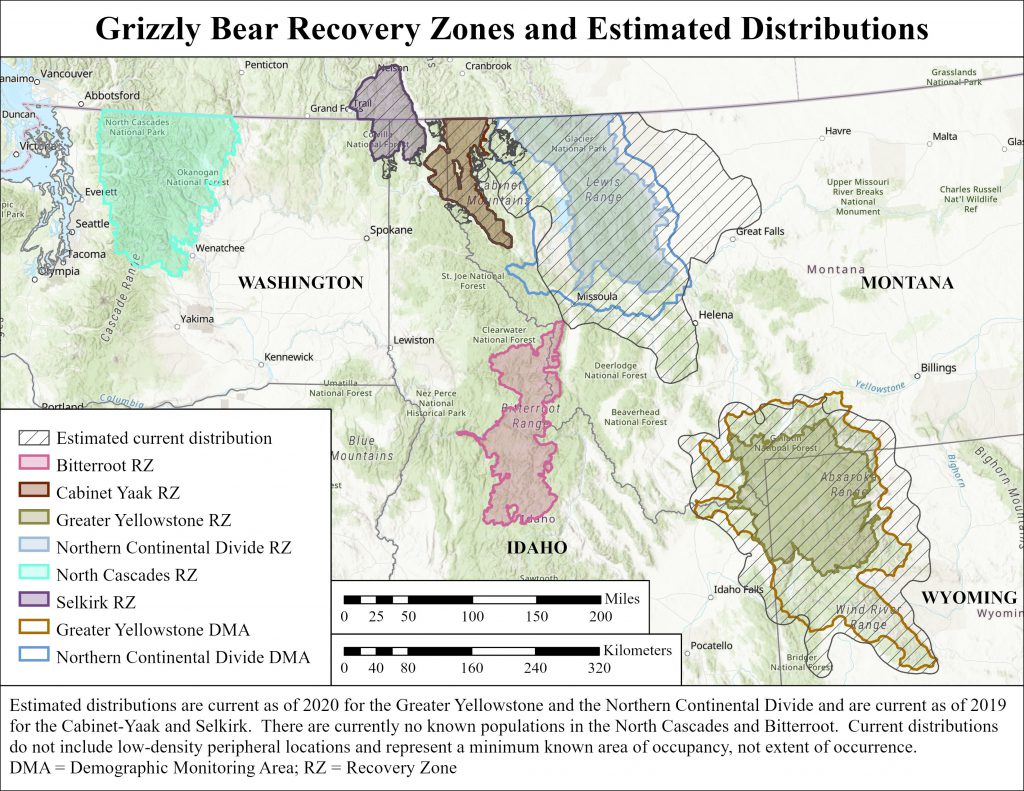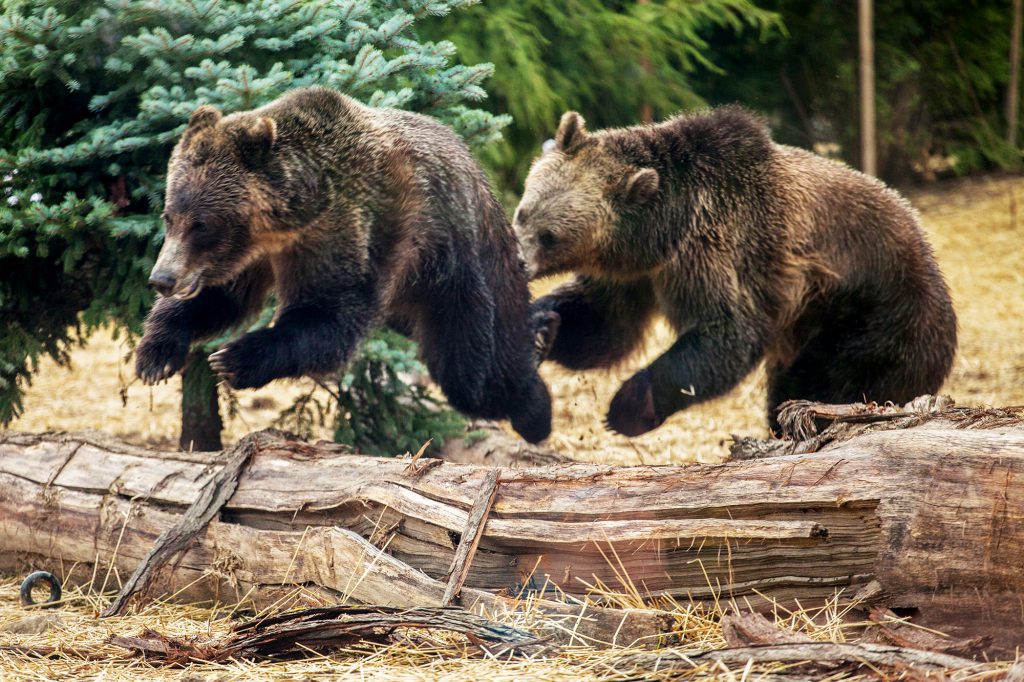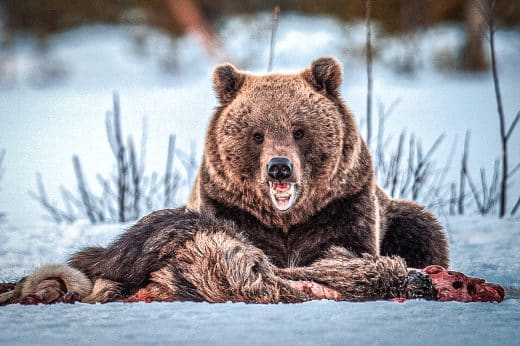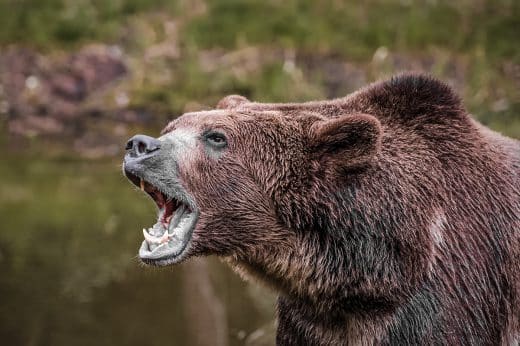UPDATE – Dec. 15: The Montana Fish and Game Commission unanimously endorsed the revised tri-state Memorandum of Agreement for Yellowstone grizzlies at its Dec. 14 meeting. Montana has now joined Wyoming, which had already approved the agreement, in its push to delist grizzlies in the Greater Yellowstone Park Ecosystem and bring management control back under the purview of the states where it is located. The third member of this tri-state agreement, Idaho, will address the issue at the next state wildlife commission meeting in January.
The case for delisting grizzly bears in the Greater Yellowstone Park Ecosystem has gained significant momentum over the past year, and Wyoming has moved a step closer to bringing a grizzly season back to the lower 48 for the first time in more than three decades. The state’s wildlife commission recently approved a crucial revised version of a tri-state Memorandum of Agreement (MOA) for Yellowstone grizzlies. Montana and Idaho are expected to follow suit by the end of January 2022.
Wyoming announced its intent to petition the federal government for delisting back in September, and Montana did the same earlier this month. If Yellowstone grizzlies are delisted, hunting for the iconic apex predator will return to the lower 48 for the first time in more than 30 years.
The Yellowstone grizzlies are currently protected under the Endangered Species Act and managed by the Interagency Grizzly Bear Committee (IGBC), consisting of various federal and state wildlife and land management agencies.
“Grizzly bears in the Greater Yellowstone Ecosystem have been biologically recovered for at least 15 years.”
Toby Boudreau, Vice President of the Interagency Grizzly Bear Committee
Now, the Wyoming Game and Fish Commission has approved a revised version of the tri-state MOA, which is an agreement that addresses the specifics of how the three states would manage grizzly bear hunting and their conservation in the Yellowstone ecosystem spanning Wyoming, Idaho, and Montana. The MOA is a critical component in the forthcoming petition to delist Yellowstone grizzlies.
“Wyoming has worked collaboratively with Idaho and Montana to make these updates,” said Rick King, chief of wildlife for the Wyoming Game and Fish Department.
The commission released a statement saying the revised MOA recognizes that the expanding grizzly bear population has grown beyond the edges of the bear’s biological and socially suitable range.
The Commission says newly updated population estimates show there are currently more than 1,000 Yellowstone grizzlies, a much larger population than is required to classify the bears as a recovered, viable population.

Related: Hunting Montana Grizzly Bears May Soon be Allowed After 30-Year Ban
At the Idaho Fish and Game Commission meeting in November, Toby Boudreau, Vice President of the ICBG, said in a presentation that the committee “agrees that grizzly bears in the Greater Yellowstone Ecosystem have been biologically recovered for at least 15 years.”
The revisions to the MOA also include a specific commitment to grizzly bears’ long-term genetic health and will provide for moving bears into the population, as needed, to maintain genetic diversity — a sticking point in past failed attempts at delisting the bears.
The MOA must still be approved by wildlife agencies in Idaho and Montana before Wyoming files a delisting petition with the US Fish and Wildlife Service.

Montana could approve the revised MOA at its state wildlife commission meeting later this month. Idaho will address the agreement at its wildlife commission meeting in late January.
Wyoming Gov. Mark Gordon issued a statement in support of the Commission’s decision.
“Today’s action by the Wyoming Game and Fish Commission is a crucial step in Wyoming’s efforts to regain management of grizzly bears,” Gordon said. “The updated Memorandum of Agreement between Idaho and Montana continues a long tradition of working together with our sister states. This approval reaffirms Wyoming’s vow and commitment to long-term grizzly bear conservation and underscores the fact that wildlife management is best placed in the hands of states, not the federal government.”
Read Next: Yellowstone Grizzly Attacks: The Future of Hunting Western Brown Bears








Comments